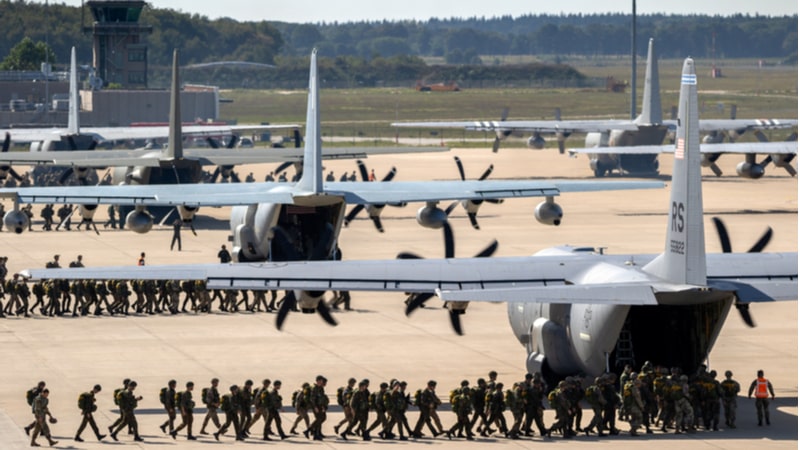
Dell Technologies’ Cloud Hybrid Edge-to-Enterprise Evaluation and Test Analysis Suite (CHEETAS) is helping the military meet the pace of its mission needs for the flightline and beyond.
During day two of AFCEA International’s TechNet Augusta 2024, Dell Technologies Federal’s Director of ISR Solutions, Brendan Harris, detailed how the CHEETAS framework has helped the U.S. military leverage data from its F-35 fleet for more than a decade.
“When the Air Force and the Navy and the Marine Corps and the joint partners were testing out this aircraft more than a decade ago, they were having a huge problem having access to the data,” Harris said. “It took a really long time post-mission – seven hours post-mission – to get access to data.”
Harris said that in 2012, the U.S. government turned to Dell as a technology aggregator and began asking critical questions like: “How do we process data better? How do we ingest it better? How do we manage it? Store it?”
“They asked, ‘How would Dell approach this problem and solve that?’ So, Dell came up with this thing called CHEETAS,” Harris said. “CHEETAS is a base upon which to build a framework.”
According to Harris, CHEETAS is available through the Defense Department’s Office of the Secretary of Defense Test Resource Management Center. “It is a government off-the-shelf capability,” he said. “If you have a [Common Access Card], you could download this free of charge and play around with it right now.”
To solve the government’s data deluge problem, Harris said that Dell engineers designed a solution that starts with a QRIP – a Quick Reaction Instrumentation Package – that fits in the weapons bay of an F-35.
“It has access via the fiber channel to every bit of data that’s going through an F-35,” Harris explained. “That mission data is now available via the QRIP, which … can store 1.2 terabytes of data.”
“The aircraft has to land, the recorders are pulled off – the memory is pulled off – it’s put into a machine … eight minutes after that, the pilots are ready to have a debrief,” he said.
Harris highlighted that these same capabilities are also available at the edge.
“What can CHEETAS do? It can do almost everything across the data lifecycle that you would need it to do. Certainly, everything the Test Resource Management Center has asked it to do,” he said. “It takes mere minutes. You have, if you’re the U.S. government, access to all of your data, and it’s a fraction of the cost.”
Harris said the original “old school” recorder was a $2.5 million, eight-foot-long container that failed to store all the data and took up an entire weapons bay of an F-35. The QRIP, in comparison, is the size of a cigar box that fits up in the weapons bay and costs $200,000 per installation.
“Dramatically different outcomes as a result of turning to a technology company to answer a technology need,” Harris said.
If you’re not in the aircraft business, Harris provided additional use cases CHEETAS could be applied to:
- Faster targeting cycles at scale;
- Rapid reprogramming at the edge;
- Predictive maintenance;
- Advanced technologies to enhance and speed up training;
- Discriminative and generative AI to advance national interests; and
- Multi-level security and cross domain solutions.
To learn more about the QRIP, click here.
